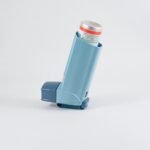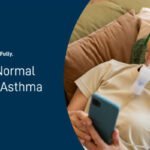
Being diagnosed with COPD can be a frightening experience, leaving you wondering about your life expectancy and what lies ahead. In this article, we will explore the question on many minds: “How long do you live after being diagnosed with COPD?” Shedding light on this topic can help ease worries and provide valuable information for individuals living with this chronic respiratory condition.
Understanding COPD
Definition of COPD
Chronic Obstructive Pulmonary Disease (COPD) is a chronic lung disease that affects the airways and makes it difficult for you to breathe. It is a progressive disease, meaning it worsens over time if left untreated. COPD is a term that encompasses two main conditions: chronic bronchitis and emphysema. Chronic bronchitis involves inflammation and excess mucus production in the bronchial tubes, while emphysema involves damage to the air sacs in the lungs.
Causes of COPD
The primary cause of COPD is long-term exposure to harmful substances that irritate and damage the lungs. The most common cause is cigarette smoking, accounting for about 90% of all COPD cases. Other factors that can contribute to COPD include exposure to air pollution, secondhand smoke, occupational dust and chemicals, genetic factors, and respiratory infections.
Symptoms of COPD
COPD symptoms can vary from person to person, but the most common signs include chronic cough, excessive mucus production, shortness of breath (especially during physical activity), wheezing, chest tightness, and frequent respiratory infections. As the disease progresses, these symptoms may worsen and interfere with daily activities and quality of life.
Diagnosing COPD
Medical history and physical examination
To diagnose COPD, your healthcare provider will start by taking a detailed medical history and conducting a physical examination. They will inquire about your symptoms, smoking history, exposure to lung irritants, and any family history of lung diseases. During the physical examination, they may listen to your lungs with a stethoscope and look for signs of breathing difficulties.
Lung function tests
Lung function tests are crucial for diagnosing COPD. The most common test is called spirometry, which measures how much air you can inhale and exhale and how quickly you can do it. This test helps determine the presence and severity of airflow obstruction, a hallmark of COPD.
Imaging tests
Imaging tests, such as chest X-rays or computed tomography (CT) scans, may be ordered to assess the structure of your lungs and rule out other conditions. These tests can help identify signs of emphysema or other lung abnormalities.
Blood tests
Blood tests are usually done to rule out other possible causes of your symptoms and to evaluate the oxygen levels and blood gases in your body. They can help determine the need for supplemental oxygen and assist in monitoring the disease progression.

Stages of COPD
Mild stage (Stage 1)
In the mild stage of COPD, you may experience mild symptoms, such as occasional coughing or breathlessness during physical exertion. Lung function tests typically show mild airflow limitation, with a forced expiratory volume in one second (FEV1) of about 80% or more of the predicted value.
Moderate stage (Stage 2)
In the moderate stage, symptoms become more noticeable and may impact your daily activities. You may experience increased coughing, mucus production, and shortness of breath. Lung function tests show a FEV1 between 50% and 80% of the predicted value.
Severe stage (Stage 3)
At the severe stage, COPD symptoms significantly worsen and can limit your ability to perform daily tasks. Shortness of breath becomes more frequent and may occur even at rest. Lung function tests reveal a FEV1 between 30% and 50% of the predicted value.
Very severe stage (Stage 4)
The very severe stage of COPD is characterized by severe symptoms that significantly impact your daily life. You may experience extreme shortness of breath, fatigue, weight loss, and frequent exacerbations. Lung function tests show a FEV1 of less than 30% of the predicted value or less than 50% with respiratory failure.
Life Expectancy with COPD
Factors affecting life expectancy
Several factors can influence life expectancy in individuals with COPD. These include the severity of the disease, the presence of comorbidities (such as heart disease or lung cancer), the individual’s response to treatment, and lifestyle factors like smoking or exposure to lung irritants. Additionally, early diagnosis and intervention play a crucial role in improving outcomes.
Average life expectancy with COPD
On average, the life expectancy of someone diagnosed with COPD is reduced compared to those without the disease. However, it is important to note that life expectancy can vary significantly depending on the individual circumstances. According to studies, individuals with COPD have an estimated average life expectancy of about 5 to 10 years after diagnosis.
Prognosis for different stages of COPD
The prognosis for COPD varies according to the stage of the disease at diagnosis. Early detection and intervention can slow down disease progression and improve outcomes. In the mild and moderate stages, with proper management and lifestyle changes, individuals can maintain a good quality of life for many years. However, as the disease progresses to the severe and very severe stages, life expectancy may be reduced, and the focus shifts more towards symptom management and palliative care.

Managing COPD
Lifestyle changes
Making certain lifestyle changes can significantly improve the management of COPD. The most critical step is to quit smoking if you are a smoker, as continued smoking will worsen your symptoms and hasten the progression of the disease. Avoiding lung irritants, such as air pollution or secondhand smoke, is also essential. Regular exercise, maintaining a healthy diet, and staying hydrated can help enhance lung function and overall well-being.
Medications for COPD
Various medications are available to help manage COPD symptoms and reduce inflammation in the airways. Bronchodilators, such as long-acting beta-agonists (LABAs) and long-acting muscarinic antagonists (LAMAs), relax the muscles around the airways, making breathing easier. Inhaled corticosteroids may be prescribed in combination with bronchodilators for those with frequent exacerbations. Other medications may be recommended to address specific symptoms or comorbidities.
Pulmonary rehabilitation
Pulmonary rehabilitation programs aim to improve the overall function and quality of life for individuals with COPD. These programs typically involve a combination of exercise training, education, and support to help manage symptoms and maintain an active lifestyle. They can also provide guidance on breathing techniques and energy conservation strategies.
Oxygen therapy
In cases of severe COPD, oxygen therapy may be necessary to increase oxygen levels in the blood. Supplemental oxygen can alleviate breathlessness, improve exercise tolerance, and enhance sleep quality. Oxygen therapy can be delivered through nasal prongs, a mask, or a portable oxygen concentrator, depending on individual needs.
Surgery options
For some individuals with very severe COPD and significant lung damage, surgical interventions may be considered. Lung volume reduction surgery aims to remove the damaged parts of the lungs, allowing the healthier lung tissue to function more effectively. In advanced cases, lung transplantation may be an option for those who meet specific criteria.
Support and Care
Importance of support system
Having a strong support system is crucial for individuals living with COPD. This can include family, friends, healthcare professionals, and support groups. A support system can provide emotional support, assistance with daily tasks, and help navigating the challenges of living with a chronic disease. They can also serve as a reminder to follow treatment plans and seek medical attention when needed.
Palliative care
Palliative care focuses on managing the symptoms and improving the quality of life for individuals with serious illnesses, including COPD. It aims to relieve pain, provide emotional and spiritual support, and enhance overall well-being. Palliative care can be initiated at any stage of COPD and is often provided alongside curative treatments.
Hospice care
In the advanced stages of COPD, hospice care may be appropriate for those who have a prognosis of less than six months. Hospice care is intended to provide comfort, support, and dignity for individuals nearing the end of life. It focuses on pain management, symptom control, and emotional and spiritual support for both the patient and their loved ones.
Emotional and psychological support
Living with COPD can take a toll on your emotional and psychological well-being. It is essential to seek support from mental health professionals or counselors who can help you cope with the emotional challenges and provide strategies for managing anxiety, depression, or stress associated with the disease. Joining support groups or online communities can also connect you with peers who understand your experiences and provide valuable support and advice.

Improving Quality of Life
Quitting smoking
Quitting smoking is the single most effective way to slow down the progression of COPD and improve your quality of life. Even if you have smoked for many years, quitting can still provide significant benefits. Your healthcare provider can offer resources and support to help you quit smoking, such as nicotine replacement therapy, medications, or counseling.
Exercise and physical activity
Regular exercise and physical activity can help improve lung function, increase endurance, and reduce breathlessness. Engaging in activities like walking, swimming, or cycling can strengthen the respiratory muscles and improve overall fitness. It is important to consult with your healthcare provider before starting an exercise program to ensure it is safe and suitable for your specific condition.
Breathing techniques
Learning and practicing proper breathing techniques can help individuals with COPD manage their symptoms and reduce breathlessness. Techniques like pursed-lip breathing, diaphragmatic breathing, and controlled breathing can help improve lung function, reduce the work of breathing, and enhance oxygen exchange.
Healthy diet
Maintaining a healthy diet is essential for overall well-being and can support lung health in individuals with COPD. Aim to consume a balanced diet rich in fruits, vegetables, whole grains, and lean proteins. Adequate hydration is also important to help thin mucus and make it easier to clear from the airways.
Preventing COPD
Avoidance of risk factors
The best way to prevent COPD is to avoid exposure to the primary risk factor – cigarette smoke. If you are a smoker, quitting smoking is critical to reduce your risk of developing COPD. Additionally, minimizing your exposure to air pollutants, occupational lung irritants, and secondhand smoke can help prevent the onset or progression of the disease.
Vaccinations
Certain vaccinations can help protect individuals with COPD from respiratory infections that can worsen their symptoms or lead to complications. The annual influenza (flu) vaccine and the pneumococcal vaccine can reduce the risk of getting the flu or developing pneumonia, which can be particularly harmful for those with compromised lung function.
Early detection and treatment
Early detection and treatment of COPD are essential for better outcomes and improved quality of life. If you experience symptoms like chronic cough, shortness of breath, or excessive mucus production, it is crucial to seek medical attention promptly. Early intervention can help slow down the progression of the disease and minimize the impact on your respiratory function.
COPD Research and Future Developments
Current research on COPD
There is ongoing research focused on advancing our understanding of COPD and developing new treatment options. Scientists are exploring various areas, including the genetic factors that contribute to the development of COPD, the identification of biomarkers for early diagnosis, and the development of novel medications and therapies to target specific pathways involved in lung inflammation and damage.
New treatment options
Emerging treatment options for COPD aim to address the underlying inflammation and airflow limitation. Researchers are investigating the effectiveness of new medications, such as anti-inflammatory drugs, immune modulators, and gene therapies. Additionally, advancements in technology, such as inhalers with improved drug delivery systems, are being explored to optimize medication effectiveness.
Hope for the future
While COPD continues to be a serious and chronic condition, advancements in research and treatment offer hope for improved outcomes and quality of life. With ongoing efforts, it is expected that new therapies, earlier detection methods, and improved management strategies will emerge in the future. Meanwhile, raising awareness, advocating for better resources and support, and prioritizing preventive measures remain important in the fight against COPD.
Conclusion
Early diagnosis, proper management, and a strong support system are crucial in navigating life with COPD. Understanding the definition, causes, and progression of COPD is essential in recognizing the signs and seeking timely medical attention. While life expectancy may be affected by the disease, focusing on lifestyle changes, adherence to treatment plans, and accessing support and care can significantly improve quality of life. Quitting smoking, engaging in regular exercise, practicing breathing techniques, maintaining a healthy diet, and avoiding risk factors can contribute to better respiratory health and overall well-being. As research continues and new developments emerge, there is hope for improved outcomes and a brighter future for individuals living with COPD.









